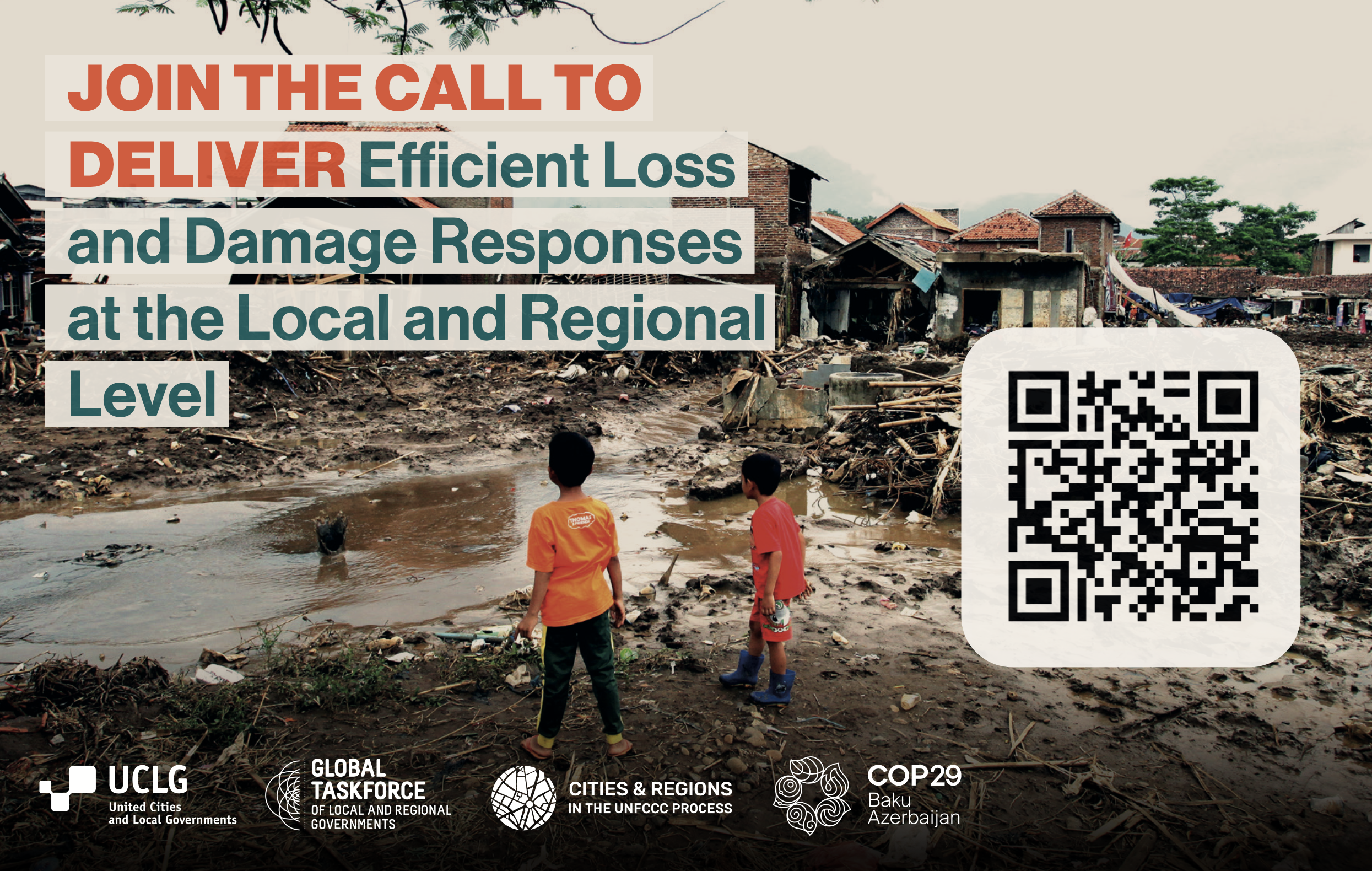
The 29th Conference of the Parties is being held in Baku from 11th to 22th November 2024. Our constituency will seek to take advantage of this momentum so that our perspectives are acknowledged, as the sphere closer to people's needs and as indispensable partners for transformation.
Multilevel governance, the recipe to fight climate change
International political commitment on climate must be based on local visions looking at people's economic, social and environmental needs so as not to leave anyone behind. Local leaders will have a place on the climate agenda where their contributions will serve as a unanimous response to national governments to finally see the need to dedicate resources and funding so that climate and sustainability policies can be implemented in all territories.
Us, local and regional governments, are the closest level of governance to the people making it our primary responsibility to work on local resilience and climate adaptation. We are uniquely positioned to understand and address these challenges with context-sensitive and tailored to the needs of our communities. We play a critical role in both mitigating climate change and leading recovery and adaptation efforts, but also in enabling delivering a new governance system to fight the planetary climate crisis.
To ensure a just transition to a sustainable planet, it is essential that we act decisively to first meet the needs of the most vulnerable and promote a coordinated global response to the escalating impacts of rapid and slow-onset climate events.
UCLG, in close coordination with its sister organizations and partners of the Global Taskforce, will be particularly active in addressing new governance systems as well as a new era to deliver loss and damage action across the world and to the Global South.
A call to deliver an efficient local and regional loss and damage response
The fight against climate change must be rooted in pursuing a true ecological transition, involving all spheres of government and citizens, in pursuit of a true transformation of the planet from the principles of solidarity and subsidiarity. A whole of government and whole of society approach that aspires to the wellbeing and sustainability of our planet must be supportive and create capacities for change from the level closest to the people, from the local level.
The devastating consequences of loss and damage are increasingly felt in our communities, our natural ecosystems, threatening lives, livelihoods, and the fabric of our present and future societies. We acknowledge that adaptation alone cannot address the impacts of climate change as they require a comprehensive, united response that crosses national borders and involves all levels of governance.
The call to deliver an efficient local and regional loss and damage response has been circulated and agreed between networks, calling international institutions and national governments to enhance North-South Dialogue, ensure accessible loss and damage finance, promote universal justice development and address global structural inequality.
The call to deliver emphasises the need to include local governments as key stakeholders in Loss and Damage responses and establish governance structures that give local governments a direct voice, with special attention to marginalised groups.
Eventually, the Call to deliver proposes to integrate a Loss and Damage line in the definition of the NDCs, in view of the NDC 3.0 finalisation, and enrich the implementation of Multilateral Environmental Agreements by including locally-sourced knowledge and implementation pathways to meet and the objectives of the three Rio Conventions: Biodiversity, Climate Change and Desertification.
This call extends to national governments to support these paradigms of transformation and ensure that there are sufficient resources to implement a local mechanism for loss and damage.
Highlights of the Global Taskforce
From Monday 11 November to Friday 22 November there will be several milestones in which the members and partners of the Global Taskforce of Local and Regional Governments will have the opportunity to influence the dialogues present and raise their voices on the need to address the global development agendas as one, and that only through a multilateral response between different actors, spheres of government and stakeholders will it be possible to implement the change we need at all levels: economic, social, political and cultural. The Global Taskforce will count with a LGMA Pavilion where most of our constituency events will take place.
Some highlights:
-
11 November - LGMA at LCCIP Multi stakeheholder Dialogue
-
14 November – LGMA Briefing with Co-Chairs of the Mitigation Work Programme
-
16 November - LGMA at COP29 Presidency Open Dialogue
-
18 November – UCLG official side-event on loss and damage, in partnership in Habitat for Humanity and UN Habitat
-
18 November - A Call to Deliver Climate Social Justice through Loss and Damage at LGMA Pavilion
-
19 November - LGMA at adaptation Finance Ministerial
-
20 November - Localised Responses to Urban Climate Migration: From Challenges to Opportunities UCLG-IOM side-event
-
20 November – Ministerial Meeting on Urbanisation and Climate Change
-
20 November - Social Climate Just Transition UCLG-ILO side-event
-
20 November - LGMA at Marrakech Partnership Human Settlements Action Event
GTF is represented at the UNFCCC processes by the LGMA, please find some links below:
- COP29 Multilevel Action and Urbanization Pavilion
- LGMA COP29 Statements - find them under "COP29 LGMA interventions"
